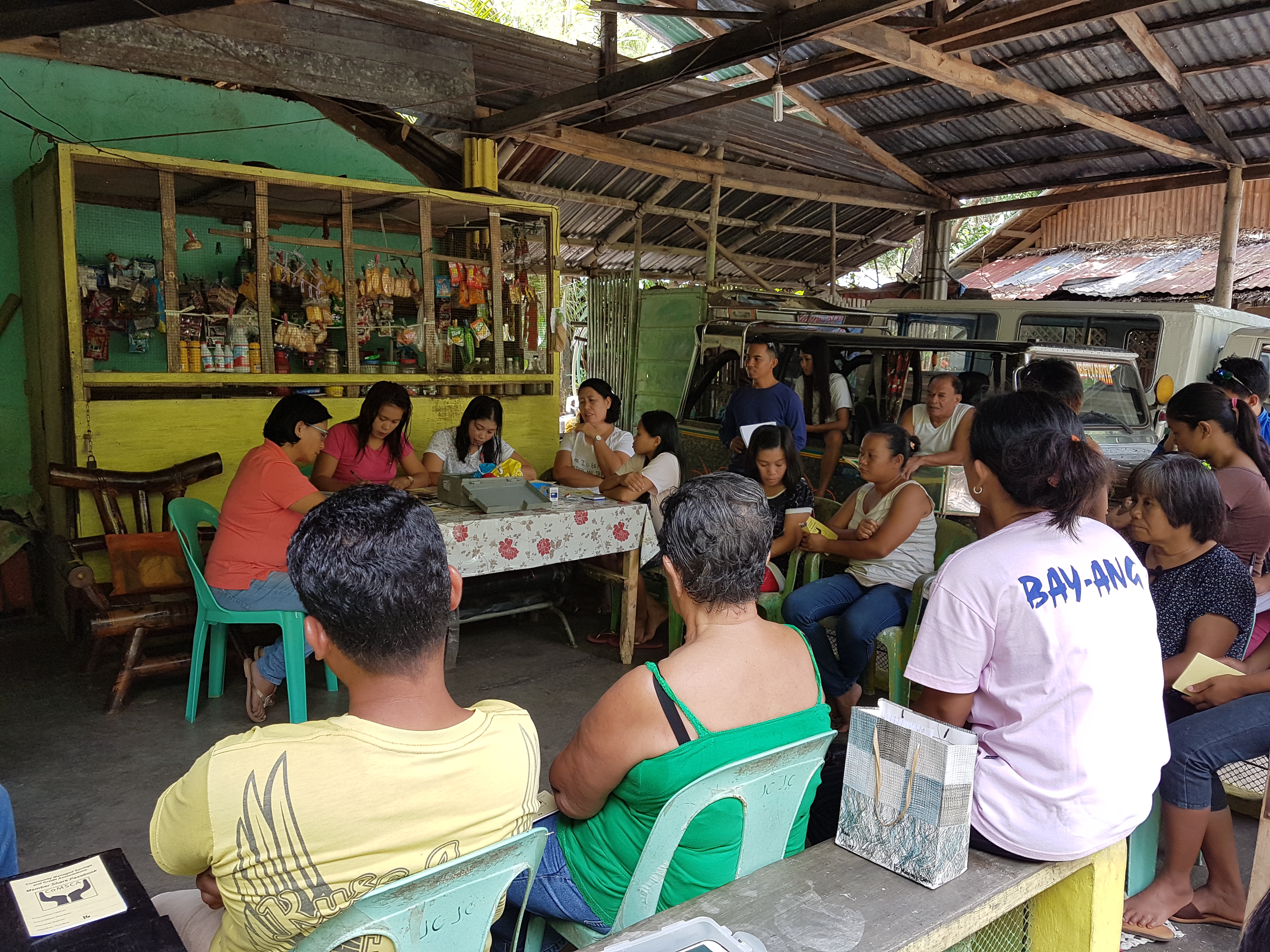As part of my job within Conservation Programmes at the Zoological Society of London (ZSL), I get to witness, first hand, Net-Works in action. In February this year I spent two weeks in the Philippines, trialling electronic data collection, and met with some of the members of the local community banks that Net-Works has helped to set up.
These community banks, known locally as CoMSCAs, are a key part of the Net-Works business model. They provide access to financial services such as savings and loans and help people manage their earnings from net sales. They give the “unbanked” – those who don’t have access to a bank account – an opportunity to unite in small groups, rally big change and invest in themselves, their community and marine conservation.
I wanted to share the inspiring stories of some of the people I met during my trip. The first story, shared here, is about a man called Nonilon who proudly told me how he has benefitted from being a member of his local CoMSCA.
Nonilon Banaban is 63 years old. This is his third year as part of a CoMSCA in the village of Bay-ang, Northern Iloilo, home to 2,780 people. Like most of the population in coastal communities, Nonilon is a fisher. Fishing is his main source of income, and he also breeds chickens for rainy days.
However, the income from fishing can be variable – on some days he might catch no fish at all. Then, he has nothing to feed his family or to sell. This has made Nonilon very reliant on loans from local microfinance groups and loan sharks to meet his basic needs and invest in his livelihood (e.g. purchasing new fishing nets).
When he could not repay his loan on time, debt collectors were sent to sleep outside his house until his debt was cleared. A few times, when he was unable to get the money together, they would take livestock from his house equivalent in value to the borrowed money.
Nonilons’ situation is typical of many people living within fishing communities across the Philippines. Their financial situation leaves them very vulnerable and keeps them trapped in the poverty cycle. According to the World Bank, over two million people remain “unbanked”. One of the main reasons for this is the distance they have to travel to reach a formal institution. Nonilon, recently changed savings group as, thanks to Net-Works, there is a newly formed CoMSCA, in his area, which is more convenient for him to reach on foot. He makes the utmost effort to attend every week and save some money.
Nonilon explains: “I am very happy and very punctual. I use this as an opportunity to meet others and find out more about the community and what’s happening. On the rare occasions that I cannot attend, I am committed to paying my fines to the community bank, as this is my responsibility.” (These fines are self-imposed, and directly added to the groups’ savings.)
Since joining the CoMSCA, Nonilon has been using the savings and loan services to buy food and pay household bills and health expenses. With the remaining money he invests in goats and fishing nets. He has also cleared all of his debts with the microfinance group. Talking about this brings a huge smile to his face.
“I feel more secure about my basic needs and food, because when I can’t catch fish, I know I can get a loan from the CoMSCA. There is a lot less pressure when accessing loans, and the CoMSCA provides a better interest rate than the banks!”
